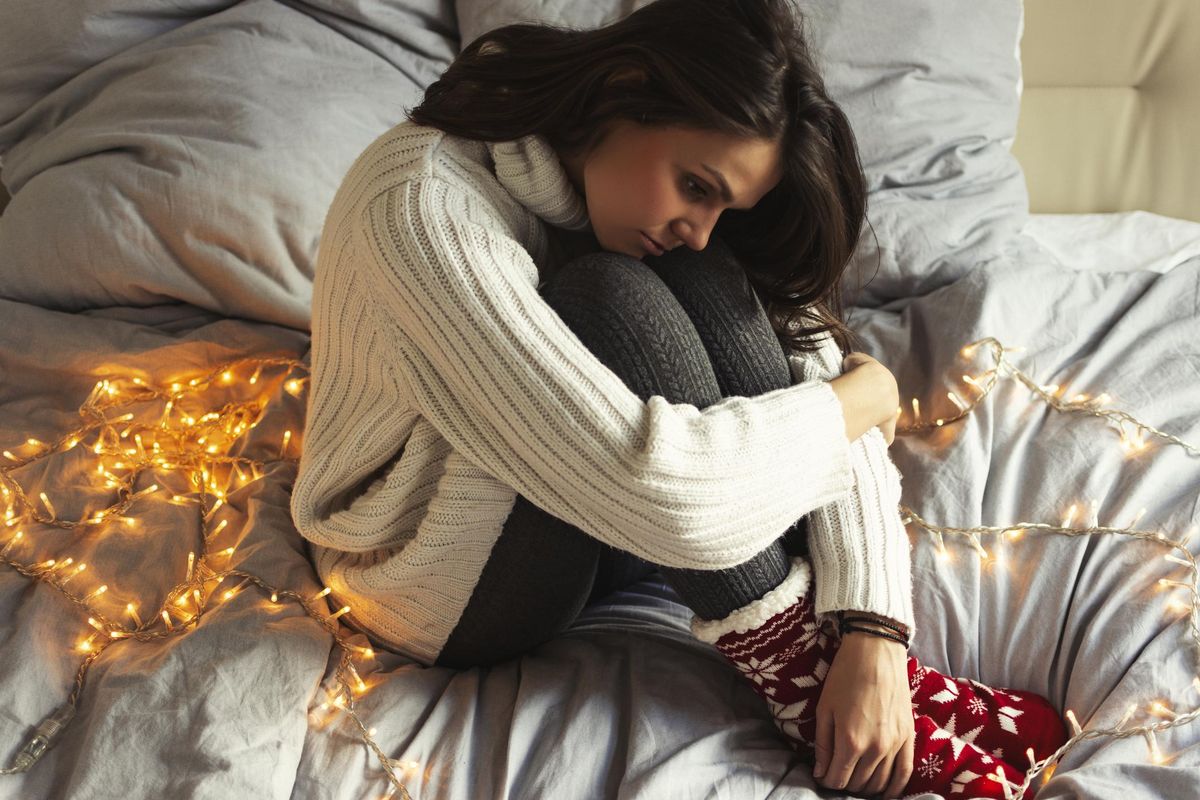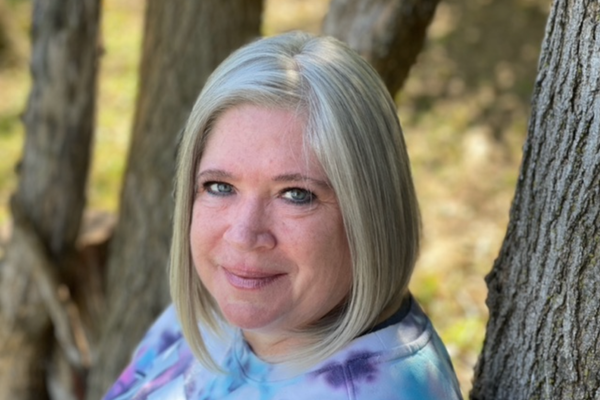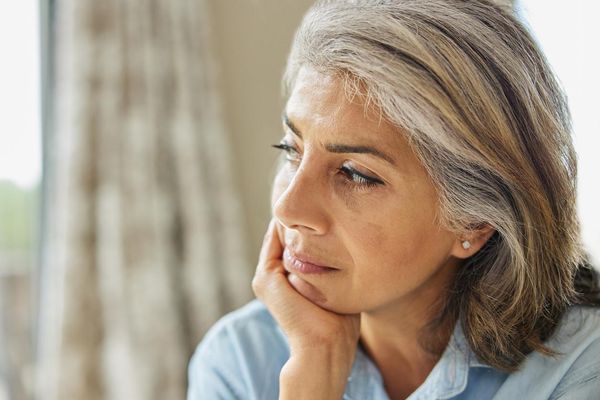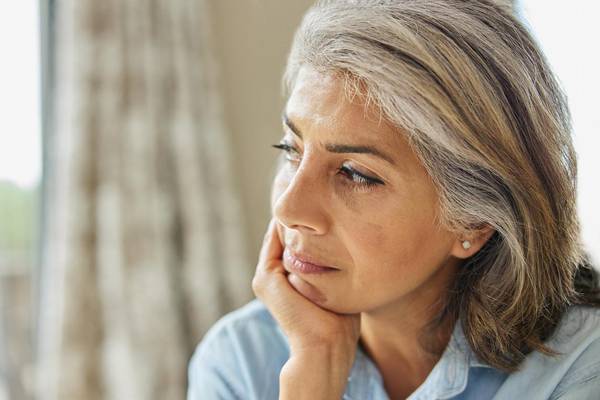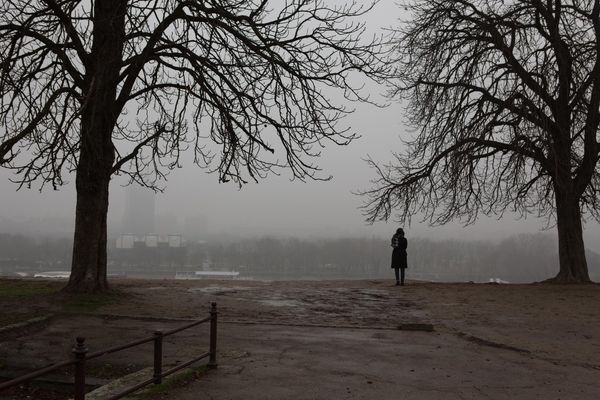For nearly 20 years, Kristy dealt with untreated depression on her own. She thought she could ignore her feelings. She pushed through — even during her first divorce, when she began to wonder whether her family would be better off without her.
It was only after her retirement 15 years later, when she struggled with no longer having the nursing career she loved so much, that she finally reached out to a mental health professional. "I would just cry and cry," Kristy said. "I decided I had to do something."
While views of mental illnesses have improved in the United States over the years, stigma remains. Like Kristy, women might hesitate to seek treatment for depression. But depression is one of the most common mental disorders, especially around the holidays, which can be a time of extra stress and loneliness. This year, the COVID-19 pandemic is likely to compound this problem, as depression rates have skyrocketed since the pandemic began.
Fighting stigma
Major depressive disorder, known commonly as depression, is more than sadness. People may feel hopeless, irritable or fatigued, or have physical symptoms like headaches. More people experience depression during the winter months as the days get shorter, a phenomenon called winter-onset seasonal affective disorder (SAD).
The holidays, which coincide with the beginning of winter, can also exacerbate depression symptoms. The cultural expectation is that this time of year is a time for families and friends to get together, but that's not an option for everyone, especially during the pandemic.
"The opportunity to spend time with others, that's limited for women who are alone, single, don't have close family members or are physically distant from their family members making it difficult to get together," said Ivy Alexander, Ph.D., clinical professor and director of the Adult-Gerontological Primary Care Nurse Practitioner Track at the University of Connecticut and a member of HealthyWomen's Women's Health Advisory Council.
Regardless of its cause, depression is an illness that, despite what some may think, can't be willed away.
Alexander likens depression to other common medical ailments. "It's not something you can decide to get over. You have to address it, like you'd address high blood pressure," she said.
Growing up, Kristy, now 63, was encouraged to accept what she had to work with in life and not ask for help. Mental illness wasn't something people talked about. "When I was growing up, mental health issues were covered up. It wasn't something that you wanted anyone to know," she said.
But stigma can prevent women from addressing depression or benefiting from treatment and can even worsen symptoms. In one study of adults over 60 with depression, those who strongly felt that others held stigmatizing beliefs about the disorder also had more severe depression.
Expectations of women in particular can make them hesitate to seek help, even now that mental health issues are discussed more openly and on their way to becoming destigmatized. "There's so much pressure to be the perfect mom or perfect partner," said Nicole Christian-Brathwaite, a psychiatrist who serves as the senior vice president and medical director of the telepsychiatry organization InSight + Regroup.
That pressure also extends to professional life. "Often in the workplace, there's this fear of being perceived as vulnerable or weak," Christian-Brathwaite said.
For women of color, cultural expectations can stand in the way of addressing their depression. "Stigma in communities of color around mental health has been apparent for a very long time," said Christian-Brathwaite, who is a Black woman.
Stereotypical expectations create further barriers for Black women in particular. "There's this unfortunate stereotype of the strong Black woman, or aggressive Black woman," Christian-Brathwaite said. "Because of the stereotype, people will assume that you don't need help because you're that strong woman, and you're not asking for help."
Barriers persist even when Black women do ask for treatment, which can reinforce negative perceptions of depression and treatment. "African American women are less likely to receive treatment for postpartum depression," said Christian-Brathwaite. "They're more likely to develop more severe symptoms of postpartum depression because of delayed diagnosis and improper treatment."
But Christian-Brathwaite is hopeful that the increased attention the pandemic has brought to mental health could alleviate some of the stigma in all communities. "People are more willing to discuss mental illness, to acknowledge that mental health treatment is necessary," she said.
Getting help when you're ready
For women who have situational or mild depression who are concerned about stigma, there are alternatives to traditional treatments like medication or therapy. In addition to consulting a clinician, other effective ways to reduce symptoms of mild depression can be found outside a doctor's office. "There are other ways you could potentially manage your depression, like exposure to sunlight or exercise," Christian-Brathwaite said.
Kristy has found a combination of antidepressants and a therapist to be helpful for her, but finding the right therapist can take time and research. "You may not find the right therapist the first time around," she said.
For Black women and women of color, finding a culturally competent therapist is important for their care, but may mean more research.
"The percentage of mental health providers who are people of color is very small," said Christian-Brathwaite. "It can be difficult for an African American woman to find a provider that they feel like they can relate to."
The National Alliance on Mental Illness recommends asking friends, family or cultural organizations for recommendations, and asking potential providers if they have experience treating others of their race or ethnicity and whether they've received training in cultural competence.
For women still wary of therapy, they might not have to see a therapist at all. "Things like depression and anxiety, which are very common, can be effectively managed in primary care," said Alexander.
The important thing is getting treatment. "You might be able to tread water for a while on your own, but at some point your head starts going underwater," Kristy said. It's vital to take the time to find the right treatment.
"It has been an absolute lifesaver."
Kristy asked us not to use her last name to protect her privacy.
Resources
National Institute of Mental Health
National Suicide Prevention Lifeline
Black Female Therapists
Substance Abuse and Mental Health Services Administration (SAMSA)
- 5 Ways to Cope With Seasonal Affective Disorder - HealthyWomen ›
- Women and Depression: Know the Signs - HealthyWomen ›
- 5 Reasons Why Energy Dips at Holiday Time - HealthyWomen ›
- Healthy for the Holidays: Webinars - HealthyWomen ›
- Making the Holidays a Bit Merrier - HealthyWomen ›
- Healthy Travel Tips for the Holidays | HealthyWomen - HealthyWomen ›

